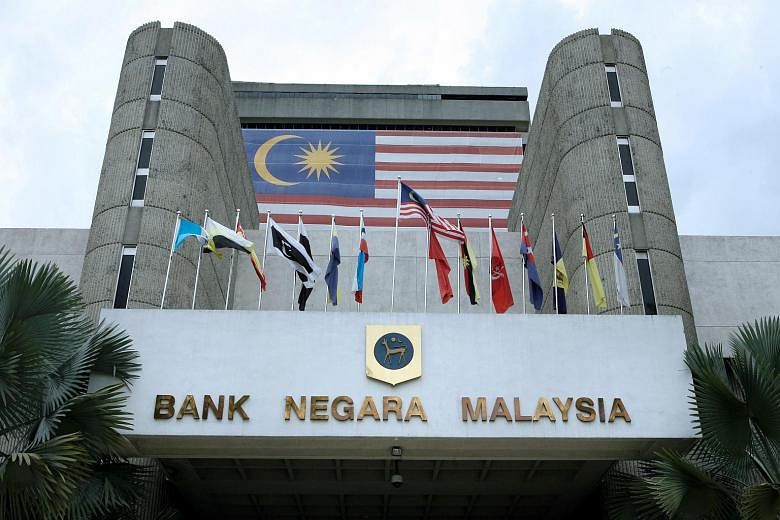KUALA LUMPUR (BLOOMBERG) - Malaysia's foreign-exchange reserves fell to the lowest in almost five years, signaling the central bank may have intervened to stem the ringgit's decline.
The holdings dropped 4.7 per cent to US$100.5 billion (S$ 137.27 billion) as of July 15 from two weeks earlier, data from Bank Negara Malaysia showed Thursday.
That's enough to finance 7.9 months of retained imports and is 1.1 times short-term external debt, according to a central bank statement. The currency weakened to a 16-year low of 3.8130 a dollar this month, surpassing the 3.8 level at which it was pegged from 1998 to 2005.
Analysts are forecasting further weakness as the United States edges closer to raising interest rates, a move that risks spurring capital outflows. While the ringgit is tracking emerging-market currencies lower this year, losses have been exacerbated by a plunge in oil prices for the nation's exports and an investigation into the finances of state investment company 1Malaysia Development Bhd.
A drop in reserves below the psychological US$100 billion level may further roil the fragile sentiment, Nizam Idris, Macquarie Bank Ltd.'s head of foreign-exchange and fixed-income strategy in Singapore, said on Thursday before the data release.
Holdings have fallen by an average US$2.2 billion a month over the past year despite monthly trade surpluses of around US$1.8 billion, suggesting "huge" capital outflows, Mr Nizam said.
A 51 per cent decline in Brent crude from a 2014 peak has helped make the ringgit Asia's worst-performing currency this year, with a loss of 8.1 per cent. It closed at 3.8063 a dollar on Thursday, prices from local banks compiled by Bloomberg show.
ING Groep NV forecasts the currency will drop to 3.85 by year-end, while Barclays Plc and Credit Suisse Group AG predict 3.88 and 3.83, respectively. The reserves have fallen 13.4 percent in 2015.
The ringgit's recent weakness is likely to be temporary and the central bank "stands ready to maintain orderly conditions in the foreign-exchange market," Bank Negara Governor Zeti Akhtar Aziz said on June 8, when the currency was down 7.3 percent for the year at 3.7665.
Continued intervention by the central bank to support the ringgit would compound pressure on Malaysia's external balance position, increasing the potential for "a multi-notch sovereign rating downgrade," BNP Paribas SA's Singapore-based economist Philip McNicholas wrote in a report Thursday.

